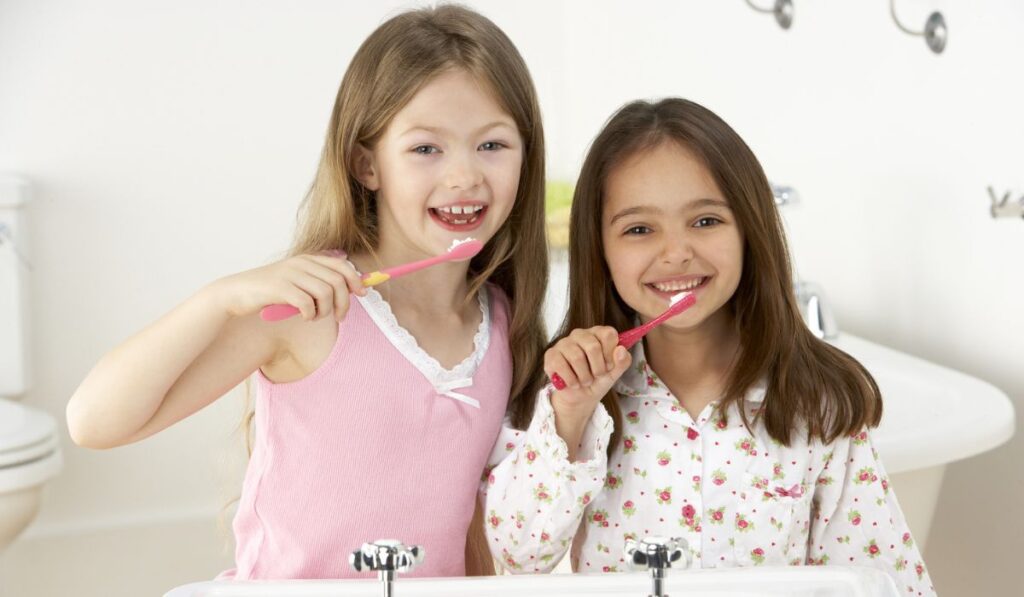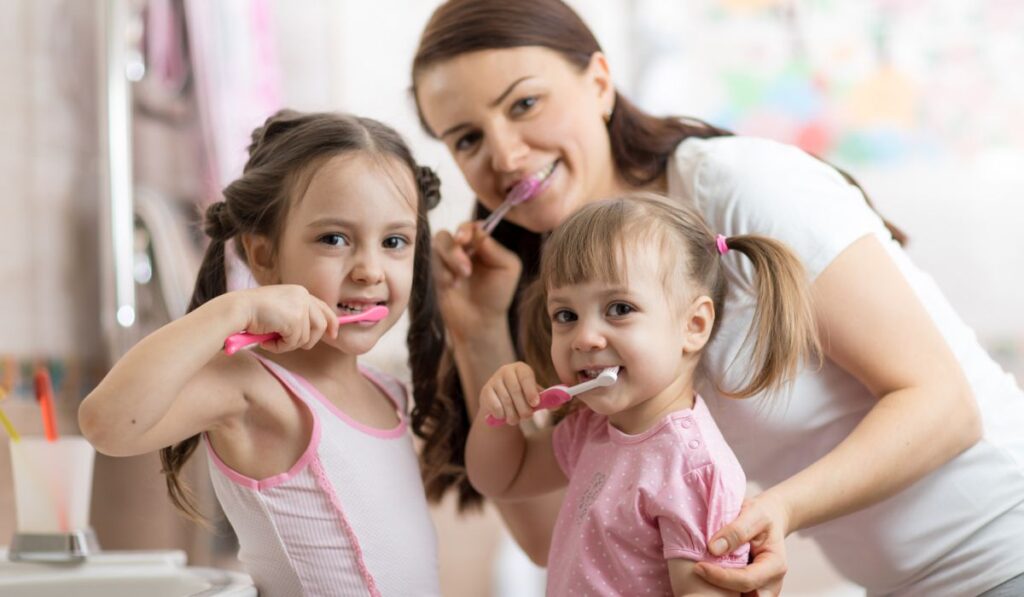We all know that toothpaste isn’t food, but it’s likely that you (or your kids) have swallowed some by mistake at some point. You might also catch small children eating it straight from the tube. Swallowing toothpaste can cause health problems, but what exactly happens if you ingest it?
Toothpaste ingredients aren’t concentrated enough to cause harm when you swallow a small amount. However, toothpaste is not meant to be ingested, and it will cause feelings of nausea or an upset stomach if swallowed in larger quantities. Doing this regularly can cause stomach problems or fluorosis.
Let’s look at what happens if you swallow toothpaste or mouthwash, how to prevent your kids from swallowing it, and what to do if you swallow toothpaste by mistake.
What Happens If You Swallow Toothpaste?

Swallowing a small amount of toothpaste while brushing won’t hurt you. Toothpastes like Colgate Optic White (on Amazon) contains fluoride, but it’s only toxic when a significant amount is ingested. Similarly, the rest of the ingredients in toothpaste are unable to cause harm in such small quantities.
However, if you swallow larger amounts of toothpaste, you may experience nausea, vomiting, and stomach problems. For this to happen, you’d have to consume a lot, almost a full tube or more. If it’s a once-off occurrence, you may feel a little ill or have slight stomach problems.
That said, someone who has a habit of swallowing toothpaste may develop more severe medical conditions in the long run due to a buildup of fluoride in their body. Fortunately, it’s unlikely that the little toothpaste that you might swallow while brushing will have any effect on your health.
Is It Safe For Kids To Swallow Toothpaste?
It’s not safe for kids to swallow toothpaste, especially ones that contain fluoride (which is most of them). But there’s no need to freak out in case your kids swallow a bit of toothpaste while brushing, because the amount of fluoride in FDA-approved toothpaste is too small to cause harm.
This doesn’t mean that swallowing toothpaste is safe. Consuming large quantities might result in medical issues. Children under the age of eight that swallow toothpaste regularly may develop dental fluorosis due to overexposure to fluoride, which causes white streaks on the teeth. Ingesting large amounts of toothpaste also can put them at risk of skeletal fluorosis, leading to bone deformities.
Always monitor children younger than six years old when they’re brushing, and make sure they don’t use more than a pea-sized amount. Children younger than six months old shouldn’t brush with fluoride toothpaste at all, as they are more at risk of swallowing it regularly.
While there’s no harm if your kid has swallowed toothpaste by mistake, it does become an issue when they make it a habit.
If your child has eaten the toothpaste tube and they’re feeling quite ill, take them to a doctor. If they’ve only consumed a small quantity and are feeling mild stomach irritation, give them some milk or yogurt and monitor their situation. If they get more ill, they should visit a doctor.
How To Prevent A Child From Swallowing Toothpaste

It can be quite tempting for children to swallow toothpaste due to the sweeteners in children’s brands. For children younger than six to eight years, you’ll have to monitor them and keep the tube out of reach after they brush. Educate your children on the toxic nature of toothpaste.
For younger children, make sure they brush with a pea-sized amount. Children younger than two years old should brush with a rice-sized amount and under adult supervision. If your child has a habit of swallowing toothpaste, you can give them non-fluoride toothpaste instead.
What Happens If You Swallow Mouthwash?
Like toothpaste, some mouthwash brands like Listerine (on Amazon) contain small amounts of fluoride, and swallowing it shouldn’t cause anything worse than an upset stomach. However, mouthwash also contains alcohol and other ingredients, which may give you a headache or make you feel nauseous and dizzy.
If your child swallows mouthwash, contact the poison control helpline for guidance. Children are more susceptible to the alcohol and other ingredients in mouthwash and may become ill from swallowing it.
To prevent this, always check the mouthwash label to see whether it’s safe for kids or not. Also, try to use alcohol-free mouthwash and keep it out of reach of children.


